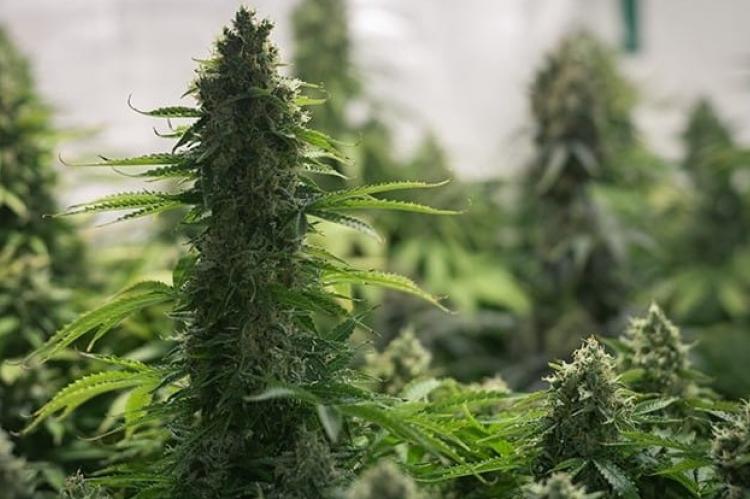Lebanon Legalizes Medical Cannabis Cultivation
The Lebanese parliament on Tuesday passed legislation to legalize cannabis cultivation for medical and industrial purposes, a move that was recommended by economic advisers even before the coronavirus pandemic dealt a devastating blow to the Mediterranean nation's struggling economy.
Under the new law, the cultivation of cannabis by farmers would be regulated within the country, according to The Daily Star, a Lebanese English-language newspaper. Although the plant has long been widely and openly cultivated in Lebanon, particularly in the country's eastern Bekaa Valley, growing cannabis was strictly illegal.
The new law would not legalize marijuana for recreational use. Instead, it would allow for the plant to be grown for export for medicinal and industrial purposes. Under the new legislation, Lebanon would also aim to foster a new legal industry producing cannabis pharmaceutical items, including wellness products and CBD oil. Industrial products, such as fibers for textiles, could also be produced from the plant.
Kareem Chehayeb, an independent Lebanese journalist and researcher, noted on Twitter that Lebanese political party Hezbollah opposed the new law. "Though their key allies supported the draft law, #Hezbollah were not the only party to oppose this," Chehayeb tweeted.
Hilal Khashan, a professor of political studies and public administration at the American University of Beirut, told Newsweek that legalizing cannabis would not be nearly enough to address Lebanon's economic concerns. He also voiced skepticism that the government would be able to successfully implement the law, given Hezbollah's opposition.
"Hezbollah is a primary beneficiary of cannabis trafficking," Khashan said. "The only way for Hezbollah to accept the ratification of the law is to be directly involved in its implementation—i.e., get its share from it."
Lebanon has been publicly discussing the possibility of legalizing cannabis for medicinal and industrial purposes for nearly two years. Back in July 2018, Raed Khoury, Lebanon's former caretaker minister for economy and trade, bragged that the quality of Lebanese marijuana "is one of the best in the world" during an interview with Bloomberg News.Khoury's remarks came after Lebanon hired New York-based global consulting company McKinsey & Co. to advise the country on how to address growing economic concerns. McKinsey had suggested that Lebanon legalize marijuana for at least some purposes. At the time, Khoury projected that legal cannabis for medical and industrial use could bring in about $1 billion annually.
The law to legalize cannabis was endorsed by parliamentary committees in March. But activists have raised concerns about the law, as they feel it does not go far enough. They argue that recreational use of cannabis should also be decriminalized. Separate legislation, which would have provided amnesty to many recreational cannabis and drug offenders while also reducing the sentences of other prisoners, was sent back to a parliamentary committee on Tuesday for further review.
"No change to any laws on the recreational production or use of the substance, which remains illegal," Timour Azhari, Al Jazeera's Beirut correspondent, tweeted on Tuesday.
Lebanon's economy was already on the verge of collapse when the country began implementing in early March strict nationwide lockdown measures in response to the coronavirus pandemic. Plagued by corruption and insecurity for decades, Lebanon has a national debt of more than $80 billion. It defaulted on its debt repayment for the first time last month, as the country continues to face a severe shortage of American dollars.
Last autumn, the economy teetered close to collapse, which led to massive anti-government demonstrations across the country in response to a series of new taxes and austerity measures proposed by the nation's leaders. Those protests resulted in the resignation of Prime Minister Saad Hariri and the formation of a new more technocratic government.
Despite Hariri's resignation and the formation of a new government, large protests continued through February as inflation soared and banks placed limits on the amount of money that could be withdrawn on a weekly basis. But as the pandemic grew, demonstrations were put on the back burner as the country entered a stringent lockdown.
On Tuesday, Lebanon's Health Ministry announced that, for the first time in over a month, there were no new confirmed cases of the coronavirus in the past 24 hours, local newspaper Annahar reported. In total, 677 people in Lebanon have been diagnosed with COVID-19, the disease caused by the virus. Of those, 21 have died and 103 have recovered.
- Log in to post comments

